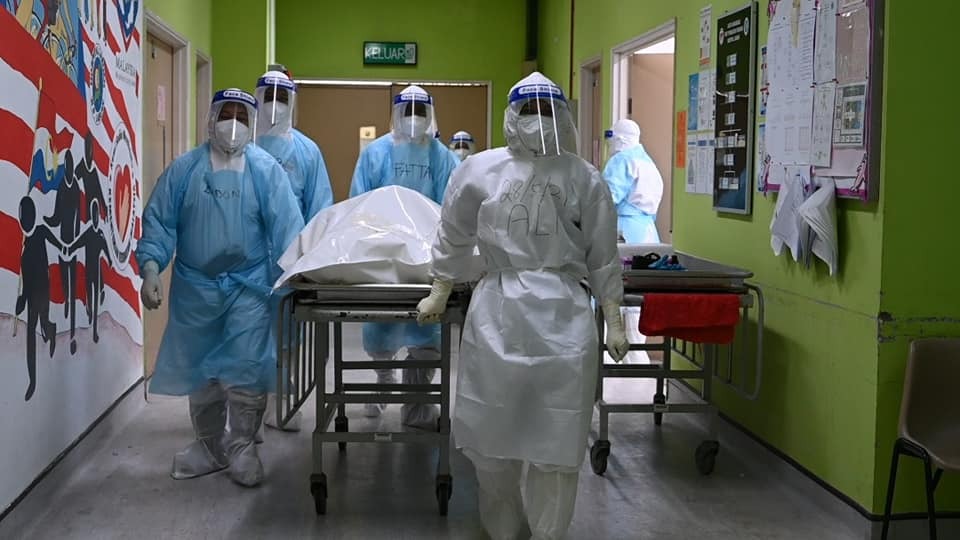As of November 2020, about 87 per cent of those who died from Covid-19 in Malaysia had pre-existing conditions such as diabetes and hypertension. These statistics come from the Ministry of Health.
Non-communicable diseases also include cardiovascular disease, hypertension, chronic lung illnesses and cancer.
I have advocated for better management of cancer cases for the last six years, urging for early screening to mitigate people presenting at late stages, and a National Cancer Fund to help alleviate the burden of treatment costs for the poor.
Governments only listen to dollars and cents, but ours is yet to buy into the rationale of early interventions to save lives and bring down costs, more so during the pandemic.
A woman came to see me in my office, a few years back, seeking financial assistance as her family couldn’t afford her cancer treatment. She was diagnosed with late-stage breast cancer.
Her husband was there as well and spoke to me about his inability to work as he had to, then, take care of the kids. So, being committed to a full-time job was a huge challenge as he had to cook, feed the children, send them to school, and then try to get to work. He was already earning a meagre sum and wasn’t in a position to pay a helper.
I turned to look at the wife, who was frail and desperately trying to hold back tears. Her husband was distraught, not just because of the financial mess they were in but also because he felt helpless.
Her last words are still etched in my mind. She told me she’d rather embrace death than see her husband and two kids lose their home in their determination to save her. It was devastating.
In an interview with UICC Global Cancer Control, Dr Adeeba Kamarulzaman, who is the former dean of the Faculty of Medicine and professor of medicine and infectious diseases at the University of Malaya, said that they were “sounding the alarm that government authorities were not paying enough attention to primary care and preventative care — particularly cancer and AIDS where late diagnosis is the norm — in order to avoid later complications” even before the pandemic.
According to her, pap smears had gone down to 32 per cent; when it comes to prostate cancer, 60 per cent of people present late, at stages three and four; and breast cancer and colorectal cancer face similar situations of late diagnosis.
A report by the George Institute for Global Health stated that 51 per cent of people who spent 30 per cent of annual household income related to cancer care are pushed into financial catastrophe one year after diagnosis.
The report added “financial toxicity” from cancer care spending is causing patients to skip medical appointments and avoid buying medications they could not afford.
This has worsened due to Covid-19, as poverty is associated with higher cancer rates, cancer risk factors such as obesity, plus lack of access to cancer screening and treatment.
I agree that Malaysia is not the only country that hasn’t been able to respond adequately to non-communicable diseases because of widespread Covid-19 infections.
The pandemic caused disruptions to health services around the world, but it’s time that Malaysia ensures an adequate response as those living with non-communicable diseases can become severely ill if infected with coronavirus.
The Malaysian government must also hold itself accountable for the right to life, which includes early screening and diagnosis, plus access to affordable treatment and medicines.
With the pandemic causing many middle-class households to slip into the B40 income bracket plus more unemployment, I cannot stress enough the need for a national cancer fund in Budget 2022 to ensure Malaysians can get affordable cancer care.
We also need proper research done to ascertain which medical services for those living with non-communicable diseases underwent disruption, and the underlying causes of disruption.
This is to enable the government to adopt an alternative strategy so that people who present high risks can continue to receive treatment.
For example, the World Health Organization (WHO) has published an algorithm for Covid-19 patient triage and referral for resource-limited settings during community transmissions.
The document outlines how each country can adopt a triage system and also includes coping mechanisms for national responses to an influx of Covid-19 infections. Another mitigation option that can be explored is telemedicine to replace personal consultations.
While we need to have meetings and discussions to tweak sticking points and come up with viable solutions, the point is that the government cannot afford to continue at status-quo.
It has to work with key stakeholders and experts to build back our health care system to ensure it responds effectively and efficiently to Malaysians living with non-communicable diseases.
Failure to do so would only incur the government considerably higher costs and leave us with a system that can’t cope with emergencies or population health.

Charles Santiago is the Member of Parliament for Klang.
Mr Charles’ article is part of an exclusive series of guest essays by experts in the health care sector for CodeBlue on their reviews of Malaysia’s 2021 Covid-19 response and their outlook for 2022.








